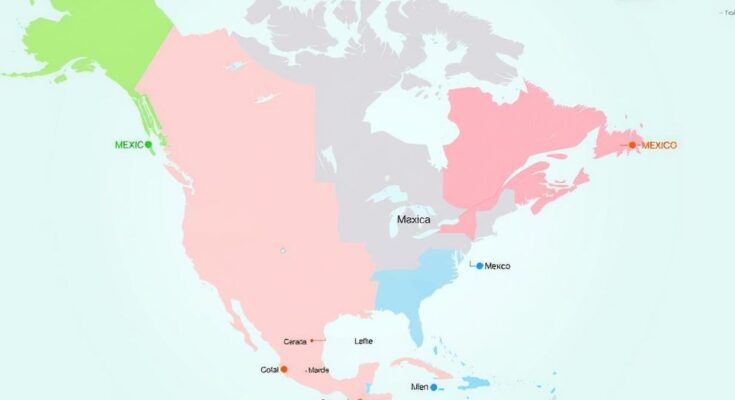Canada and Mexico were exempt from President Trump’s April 2 reciprocal tariffs, originating from existing tariffs on imports, including a 25% duty on fentanyl. Despite this exclusion, they continue to face previous tariffs and are preparing counter-measures to protect their economies.
On April 2, President Donald Trump announced a series of reciprocal tariffs aimed at several countries, claiming that the United States had been “looted, pillaged, raped, plundered” by other nations. Despite this announcement, Canada and Mexico found themselves exempt from the immediate imposition of these tariffs, which ranged from 10% to 45% depending on the country. The two nations were relieved but have not escaped all tariff measures entirely, as existing tariffs remain in force.
The exemption for Canada and Mexico stems from previously established tariffs, including a 25% duty on fentanyl-related imports and a 10% duty on Canadian energy and potash. While they are spared from the new reciprocal tariffs announced on April 2, both countries continue to face the impact of earlier tariffs imposed by the Trump administration. Canadian Prime Minister Mark Carney emphasized the nation’s intent to impose counter-measures to protect workers in response to the tariffs.
In summary, Canada and Mexico successfully evaded the newly announced reciprocal tariffs by President Trump due to existing tariffs already placed on their goods. However, the ongoing responsibilities under previous tariffs still affect both countries. The trade dynamics under the US-Mexico-Canada Agreement will continue to influence tariff implementation and its enforcement, while leaders from both nations prepare to confront subsequent challenges.
Original Source: www.hindustantimes.com




